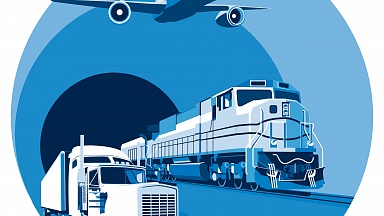During a panel discussion, participants were asked by moderator Tom Crabtree of Boeing Commercial Airplanes whether the end of the Covid pandemic would equate to the end of the freighter boom that the sector has experienced over the last two years.
Robert Convey, senior vice president sales and marketing at conversion firm Aeronautical Engineers Inc, said that it had solid backlogs for this year, was at around 85-90% full in 2023 and was now selling into 2024.
He said that a rise in e-commerce, which tends to utilise the speed of service of air cargo, was one reason for continuing demand.
«My guess is that it is going to (be) mid-2024, rolling into 2025 before we start seeing a slowdown [in demand for narrowbody freighters]
«It is driven by Covid [causing a lack of belly capacity] and also online demand, with people getting more and more comfortable with ordering online that perhaps didn’t do it before.»
Refael Matalon, vice president and general manager marketing, IAI Aviation Group, agreed that demand for freighter aircraft would continue beyond the pandemic.
Matalon pointed out that IAI’s B767 conversion programme was fully booked in 2018 and 2019, before Covid had hit.
He added that the impact of Covid on the passenger market meant that airlines/lessors were looking to diversify their fleets into freighters to reduce risk.
«I don’t think we will feel some dramatic drop in demand for slots in the next two or three years,» he said.
Brian Hermesmeyer, Boeing director for product marketing and freighter customer lead, said that some of the demand for new all-cargo aircraft comes from the need to replace the older freighters currently being used — a market driver unrelated to Covid.
Stricter emissions regulations would also drive the need to replace older models of freighters, he said.
Shippers had also grown used to reliability and speed of dedicated airfreight operations in light of the supply chain challenges experiences over the last couple of year, which may also support demand for freighters.
Boeing expects the air cargo market to grow at compound annual growth rate of 4% over the next 20 years, which will further fuel demand.
«Operators are coming under significant pressure to reduce their carbon footprint and one of the ways to do that is re-fleeting,» he said.
«With the size of the large freighter fleet out there and the growth in this space, that is what has got people looking at it right now.»
He added: «The disruption of supply chains that we are experiencing right now is really causing people to have a second look at the reliability and efficiency of air cargo and how that plays into their supply chains.»
Crawford Hamilton, head of freighter marketing at Airbus, agreed: "It is a long-term business and there are an awful lot of old aeroplanes out there that are frankly past it.
«It is incredible to see these aircraft fly, but do they really have a place in the modern world?
«You will also see a push on sustainability on some of the older aircraft.»
There are also new and returning freighter customers, the panellists said.
Convey said that airlines and aircraft operators that had previously left the freighter market were now considering returning, echoing Matalon’s comments around the need to diversify.
«The combination carrier seems to be making a bit of resurgence on the narrowbody [freighter] side,» said Convey.
«Companies that wouldn’t have thought about [operating freighters] previously are now looking at it as a way to protect themselves if there is another downturn.
«We are seeing a new breed of operators step up to the plate, whether to lease or convert some of their own aircraft just as a defensive play. Whether that is long term, it remains to be seen.»
Hamilton added that cash rich container shipping lines had also been investing in freighters recently, with CMA CGM one of the first to invest in Airbus’ recently announced A350F.
Hermesmeyer said that there were also question marks over the return of belly capacity and that flights on certain routes may change in the long term.
«Not every bellyspace market will return with the same capacity or even the same aircraft types as people look to different ways of restoring their passenger businesses,» he said.





